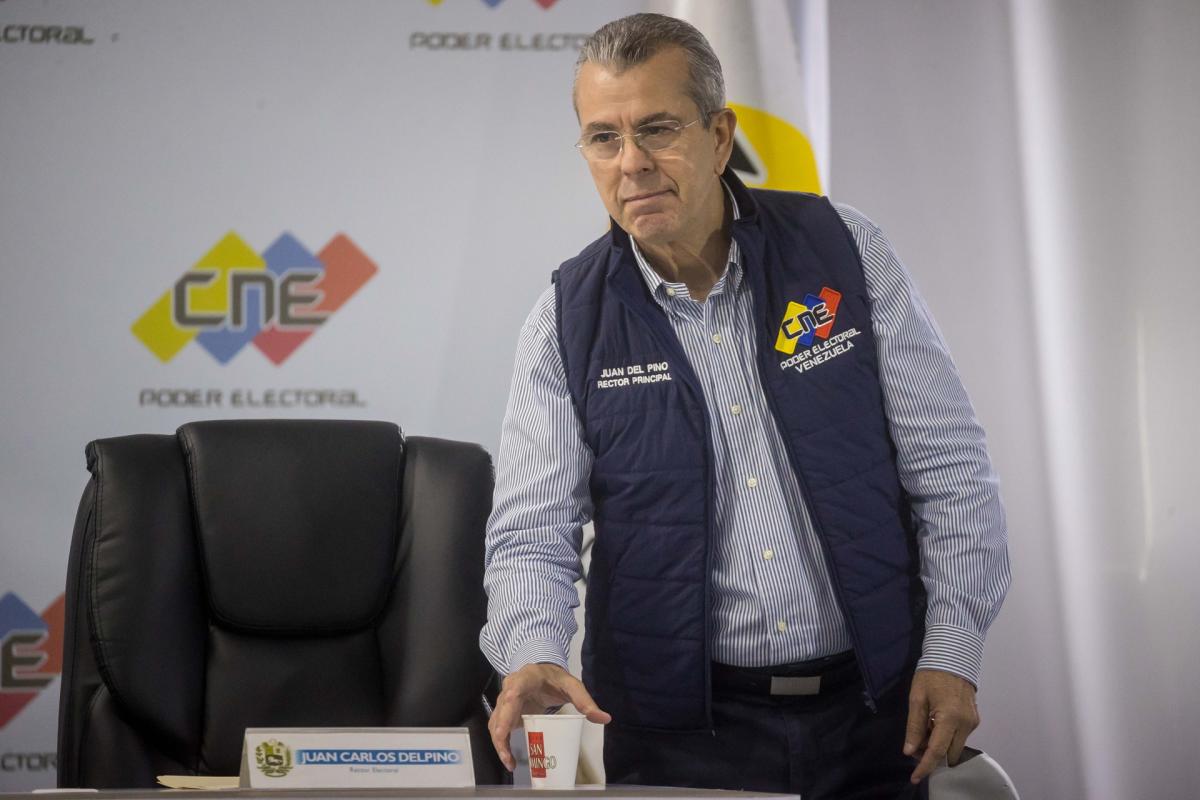Democratic Unitary Platform rejects persecution against Juan Carlos Delpino

The Democratic Unitary Platform rejected on Sunday the persecution of the government of Nicolás Maduro against Juan Carlos Delpinoafter the National Assembly with a Chavista majority will dismiss him as rector of the National Electoral Council (CNE) and urge the Public Ministry to initiate a criminal investigation to determine the criminal responsibilities against him.
“From the Democratic Unitary Platform we reject the persecution that the regime has undertaken against the rector of the CNE Juan Carlos Delpino for not having become complicit in the fraud perpetrated against the popular sovereignty expressed through the vote on July 28,” indicated a statement issued by the organization on social networks.
Last week, parliamentarians declared the alleged political and administrative responsibility of Juan Carlos Delpinobased on article 222 of the Constitution, after he denounced irregularities in the presidential elections on July 28.
After his dismissal, the substitute rector Conrado Pérez Briceño was appointed to replace him and the substitute rector Aura Hernández as a substitute incorporated before the CNE, following the order of the list approved in 2022.
“Venezuela demands an independent electoral referee attached to the constitutional mandate,” added the Democratic Unitary Platform.
The Legislature also announced that will ask the Prosecutor’s Office to open a criminal investigation against the former electoral director —who is outside the country— for alleged corruption, treason, association to commit a crime, complicity with foreign powers and complicity in the homicides committed in the context of post-election protests, estimated at 27 by the authorities.
From the Democratic Unitary Platform we reject the persecution that the regime has undertaken against the rector of the CNE Juan Carlos Delpino for not having become complicit in the fraud perpetrated against the popular sovereignty expressed through the vote last June 28.…
— Unidad Venezuela (@unidadvenezuela) October 20, 2024
What laws were violated with the dismissal of Juan Carlos Delpino?
The NGO Access to Justice explained that with the dismissal of Juan Carlos Delpino as rector of the CNE Article 31 of the Organic Law of the Electoral Power was violatedwhich requires a prior ruling from the Plenary Chamber of the Supreme Court of Justice for the removal of the rectors of the CNE.
Furthermore, the Assembly did not adhere to the legal assumptions established in article 32 of the LOPE for the removal of rectors.
The organization highlighted that this situation once again dilutes the principle of separation of powers, enshrined in article 136 of the Constitution, and one power is imposed over another, weakening the constitutional rule of law and leaving those affected without guarantees.
Independent journalism needs the support of its readers to continue and ensure that the uncomfortable news they don’t want you to read remains within your reach. Today, with your support, we will continue working hard for censorship-free journalism!
